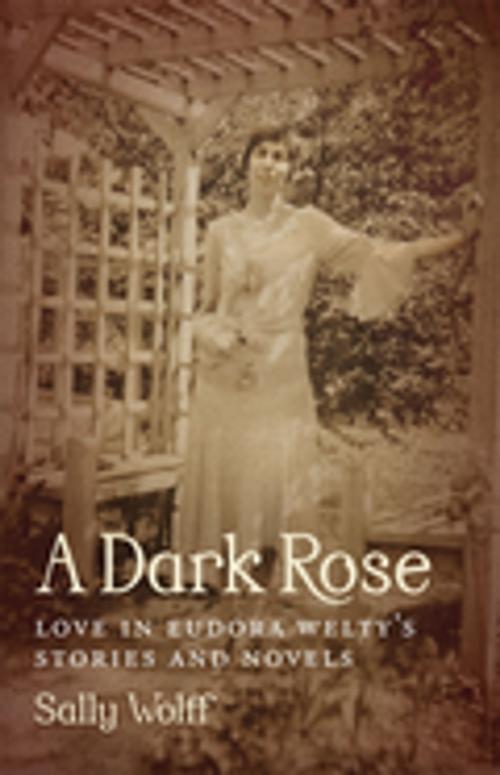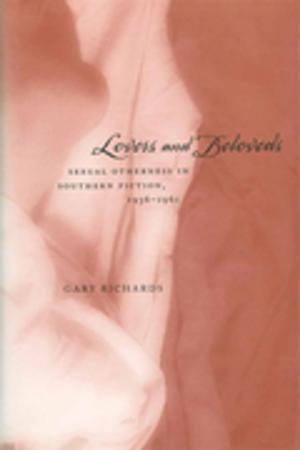A Dark Rose
Love in Eudora Welty's Stories and Novels
Fiction & Literature, Literary Theory & Criticism, American| Author: | Sally Wolff | ISBN: | 9780807158296 |
| Publisher: | LSU Press | Publication: | January 5, 2015 |
| Imprint: | LSU Press | Language: | English |
| Author: | Sally Wolff |
| ISBN: | 9780807158296 |
| Publisher: | LSU Press |
| Publication: | January 5, 2015 |
| Imprint: | LSU Press |
| Language: | English |
From the heartbroken protagonist she depicted in her first published story, "Death of a Traveling Salesman," to the reflective widow she described in her last novel, The Optimist's Daughter, Eudora Welty wrote realistically about the shadows and radiance of love. In a meticulous exploration of this theme, Sally Wolff combines new readings of Welty's fiction with contextual information and background drawn from a nineteen-year friendship with Welty.
A common image in much of Welty's fiction, the rose has traditionally symbolized love in literature. Wolff argues that the dark rose-from the height of its brilliance to the end of its life-serves as an apt metaphor for the dichotomies Welty presents, equally suggestive of beauty and sadness, as well as the comic, tragic, and mysterious qualities of love. While some of Welty's characters seem autobiographical-a daughter remembering her parents' marriage or a broodingly hopeful member of a large family wedding-at times Welty analyzes from a distance the dynamics of successful and troubled loving relationships. Although Welty experienced love several times during her life, she never married, and Wolff argues that this vantage point allowed Welty to write from an objective perspective in her fiction about the varied dimensions of love.
A Dark Rose explores several texts to examine Welty's nuanced and intricate portrayals of love. Though love in Welty's fiction fails, wears thin, and even faces death-it remains a vital force in her characters' lives.
From the heartbroken protagonist she depicted in her first published story, "Death of a Traveling Salesman," to the reflective widow she described in her last novel, The Optimist's Daughter, Eudora Welty wrote realistically about the shadows and radiance of love. In a meticulous exploration of this theme, Sally Wolff combines new readings of Welty's fiction with contextual information and background drawn from a nineteen-year friendship with Welty.
A common image in much of Welty's fiction, the rose has traditionally symbolized love in literature. Wolff argues that the dark rose-from the height of its brilliance to the end of its life-serves as an apt metaphor for the dichotomies Welty presents, equally suggestive of beauty and sadness, as well as the comic, tragic, and mysterious qualities of love. While some of Welty's characters seem autobiographical-a daughter remembering her parents' marriage or a broodingly hopeful member of a large family wedding-at times Welty analyzes from a distance the dynamics of successful and troubled loving relationships. Although Welty experienced love several times during her life, she never married, and Wolff argues that this vantage point allowed Welty to write from an objective perspective in her fiction about the varied dimensions of love.
A Dark Rose explores several texts to examine Welty's nuanced and intricate portrayals of love. Though love in Welty's fiction fails, wears thin, and even faces death-it remains a vital force in her characters' lives.















